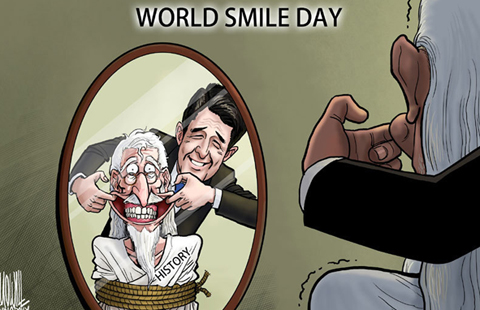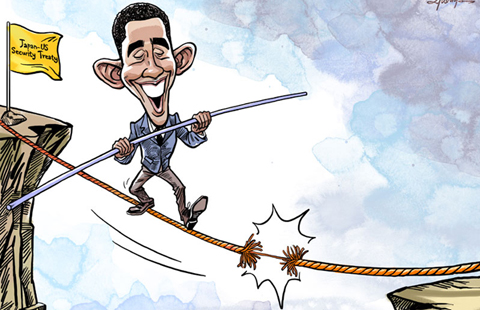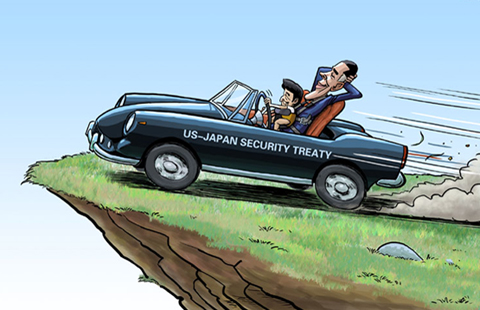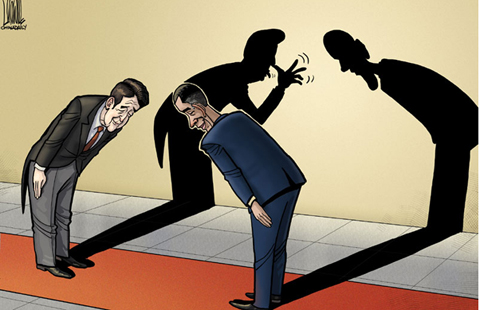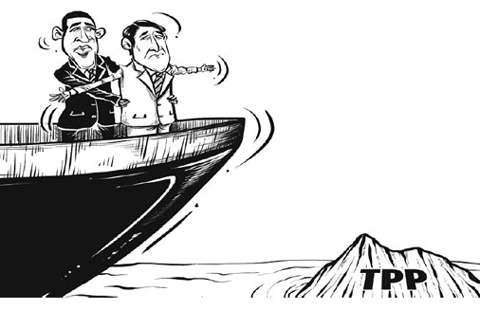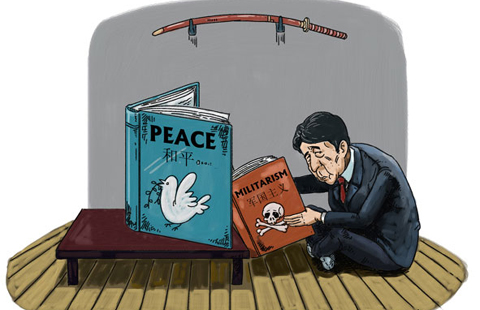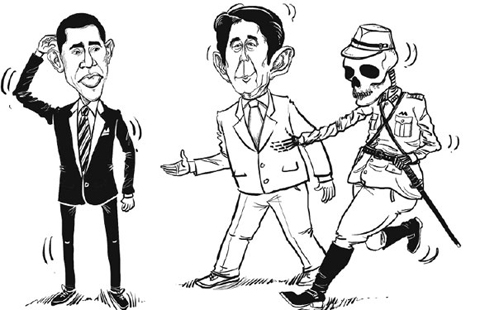Cartoon: World Smile Day
[2014-05-08 07:11]Ensuring peace in Asia
[2014-04-28 07:20]There are two options to safeguard Asia's security: relying on big powers and Cold War alliances to deter threats to regional order, or building an Asian community of common destiny featuring trust and development.
Learning the lessons of defeat
[2014-04-28 07:20]On the 120th anniversary of the outbreak of the First Sino-Japanese War (1894-95), China should reflect on the causes for its defeat
More evidence to nail Japan's lies on wartime crimes
[2014-04-26 07:21]Nearly 90 newly sorted documents of the Japanese military during its occupation of Northeast China from 1931 to 1945, just released by Jilin Provincial Archive in Changchun, once again revealed Japanese war atrocities and proved how wrong Japanese right-wing politicians have been.
US president's missing message in Japan
[2014-04-25 07:12]During his three-day visit to Japan from April 23 to 25, US President Barack Obama seems to be focusing on the US-Japan security alliance, the Trans-Pacific Partnership negotiations and the trilateral cooperation with Japan and South Korea. What has been missing is him raising a voice of concern over Japanese Prime Minister Shinzo Abe's views on World War II history.
Shrine visits reflect militarism
[2014-04-24 07:00]Despite fresh protests from Beijing and Seoul, a Japanese cabinet minister and nearly 150 lawmakers visited the Yasukuni Shrine on Tuesday. The shrine commemorates Japan's war dead, including convicted war criminals from World War II, and such visits are highly provocative to Japan's neighbors that were the victims of Japan's brutal militarism.
Nothing peaceful about TPP talks
[2014-04-24 07:00]By according the warmest possible welcome to US President Barack Obama on his three-day visit to Japan from Wednesday, Japanese Prime Minister Shinzo Abe is aiming to expedite the Trans-Pacific Partnership negotiations in order to end the frictions between Washington and Tokyo. Also, Abe thinks that progress on the trade front can, to some extent, ease tensions between the US and Japan after he ignored Washington's caution to visit Yasukuni Shrine, which honors 14 Class-A war criminals, and angered Japan's neighbors, especially China and the Republic of Korea.
TPP an albatross around US neck
[2014-04-24 07:00]The Trans-Pacific Partnership negotiations have apparently reached the final stage, but it is still not known when an agreement on the TPP can be reached.
US should not be led astray
[2014-04-23 06:57]HOW HE WILL REASSURE HIS COUNTRY'S allies without leaving the impression the United States and its allies are ganging up on China will be a test of US President Barack Obama's political acumen as he starts a four-nation visit to the Asia-Pacific in Japan on Wednesday.
Some vital advice for US president
[2014-04-23 06:57]Just two days before US President Barack Obama's visit to Japan on his four-nation tour of Asia, Japanese Prime Minister Shinzo Abe sent a ritual offering to Yasukuni Shrine, a symbol of Japan's militarist past which honors 14 Class-A war criminals. On Tuesday, 146 Japanese lawmakers visited the shrine again. A couple of days before that, Japanese Defense Minister Itsunori Onodera attended a ceremony to begin construction of a radar base on Yonaguni Island, just 150 km from China's Diaoyu Islands.
Obama's Japan visit unlikely to be fruitful
[2014-04-23 06:57]On Oct 3, 2013, the White House announced that President Barack Obama had cancelled plans to attend the Asia-Pacific Economic Cooperation meeting because of the US government shutdown. Ever since the US administration had been crafting plans for Obama to visit Asia.
Quality matters in US-Japan ties
[2014-04-23 06:57]To maintain security, one usually has only two options. The first is to strengthen oneself, and the second is to look for powerful partners to maintain a stronger position vis-a-vis others. In international relations, the former means building defense capabilities so that one state can attack another to maintain its security, while the latter uses a variety of security alignments, including entering alliances.
